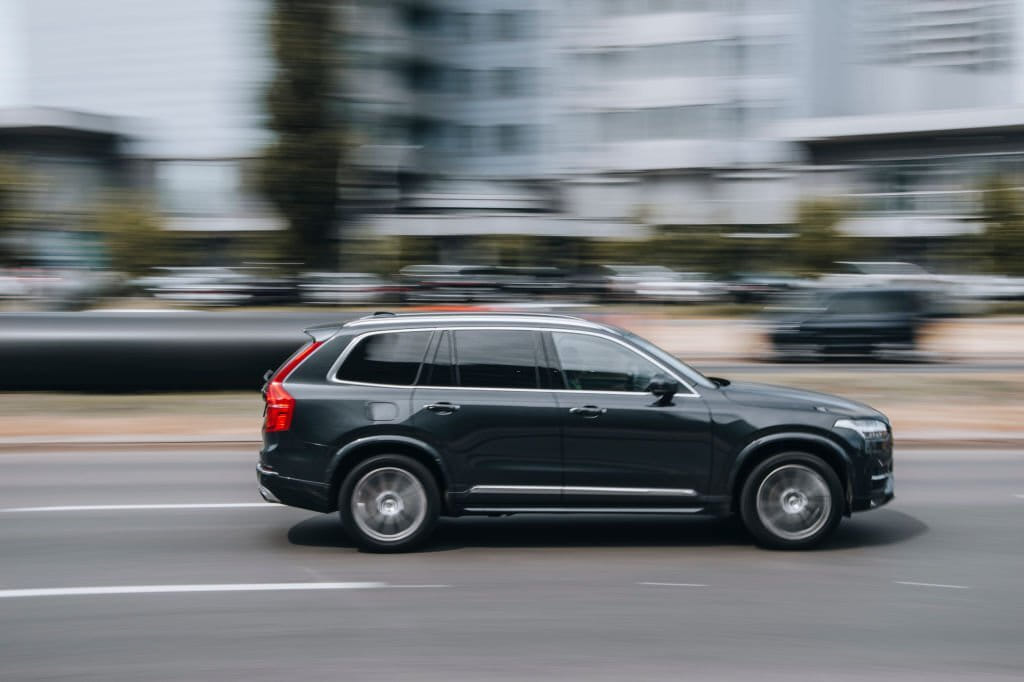A Volvo XC90 growling noise when accelerating is not a pleasant thing to deal with.
Any noise that comes along when you are driving can be concerning. Why does this happen, anyway? Does this mean there is a serious problem?
If you are hearing a growling noise when you accelerate, there are some reasons why this happens. Keep reading to discover the causes of this problem and what you can do about it.

Contents
Causes Of The Volvo XC90 Growling Noise When Accelerating
A growling noise as you accelerate is indeed concerning. Some noises may be considered as normal, yet there are sounds that can trigger panic to any driver.
So, what should you do when you hear any unusual noise as you drive? Should you take your car to the mechanic or is this nothing to be worried about?
First of all, there are cases when a growling noise comes on as you speed up. In this case, it is possible that your tires are damaged. If this is the reason behind the noise, then you should most definitely stop and inspect your tires to make sure they are okay.
Otherwise, the more you continue driving with bad tires, the higher the chances of getting into a serious accident that can also include other motorists. Thai is why you should never ignore this noise and check right away what may be causing it.
But if the noise is not caused by your tires, then it may be that an engine belt problem is generating this noise. You may have a worn or loose engine belt, which needs to be replaced as soon as possible.
Another cause would be a problem with the axles. When your axles start to fail, this can cause the wheels to come loose, which is very dangerous. Either that or the wheels may lock up, which is equally problematic.
Now, when the noise appears to get louder and louder as you accelerate, you may have issues with one of your belt pulleys. Go ahead and inspect these components the moment you hear the growling noise as you speed up.
There is also the likelihood of the exhaust system having some issues, which is why the rumbling sound is occurring. Your exhaust system is working very hard as it tries to manage the excess exhaust fumes, which is due to a leak.
Other Noises To Pay Attention To
Aside from a growling noise, there are other types of noises that you may hear when you accelerate. These include a grinding sound, which happens when you speed up and shift through your gears. In this case, your clutch may be having issues, as well as the transmission. So, you will need to go to your mechanic to get this issue addressed appropriately.
As for a rattling sound, it is indeed quite concerning. There are many causes behind this sound, depending on the location of the noise. If it is coming from under the car, this means that some components are loose such as the catalytic converter or the exhaust system. But if the noise is underneath the bonnet, it may mean your oil levels are low, or some other issues related to the oil reservoir.
But when you hear a ticking sound, you will need to top up on oil. You need to stop driving and pull over right away and inspect the oil level. But if you do not see any issue with the oil level, you will have to check some more since there may be an even more serious problem going on.
A knocking sound when you go over some bumps may be coming from the inside of your vehicle. This may mean that there is a heavy object that clumps around in the glove compartment. However, noise that comes from under the vehicle could mean there is a loose key component that needs to be checked and addressed right away.
Read More: What Are Common Volvo XC90 Door Lock Problems?
Final Thoughts
There are a number of reasons behind a Volvo XC90 growling noise when accelerating. So, instead of shrugging it all off and ignoring these noises, be sure to get them checked sooner than later. We have indicated the most common reasons behind these noises, and it is best to check which one among these may be causing the problem.
By doing so, you can perform the right technique and carry out the appropriate solution to get this problem with a growling noise addressed and prevent serious issues when driving.